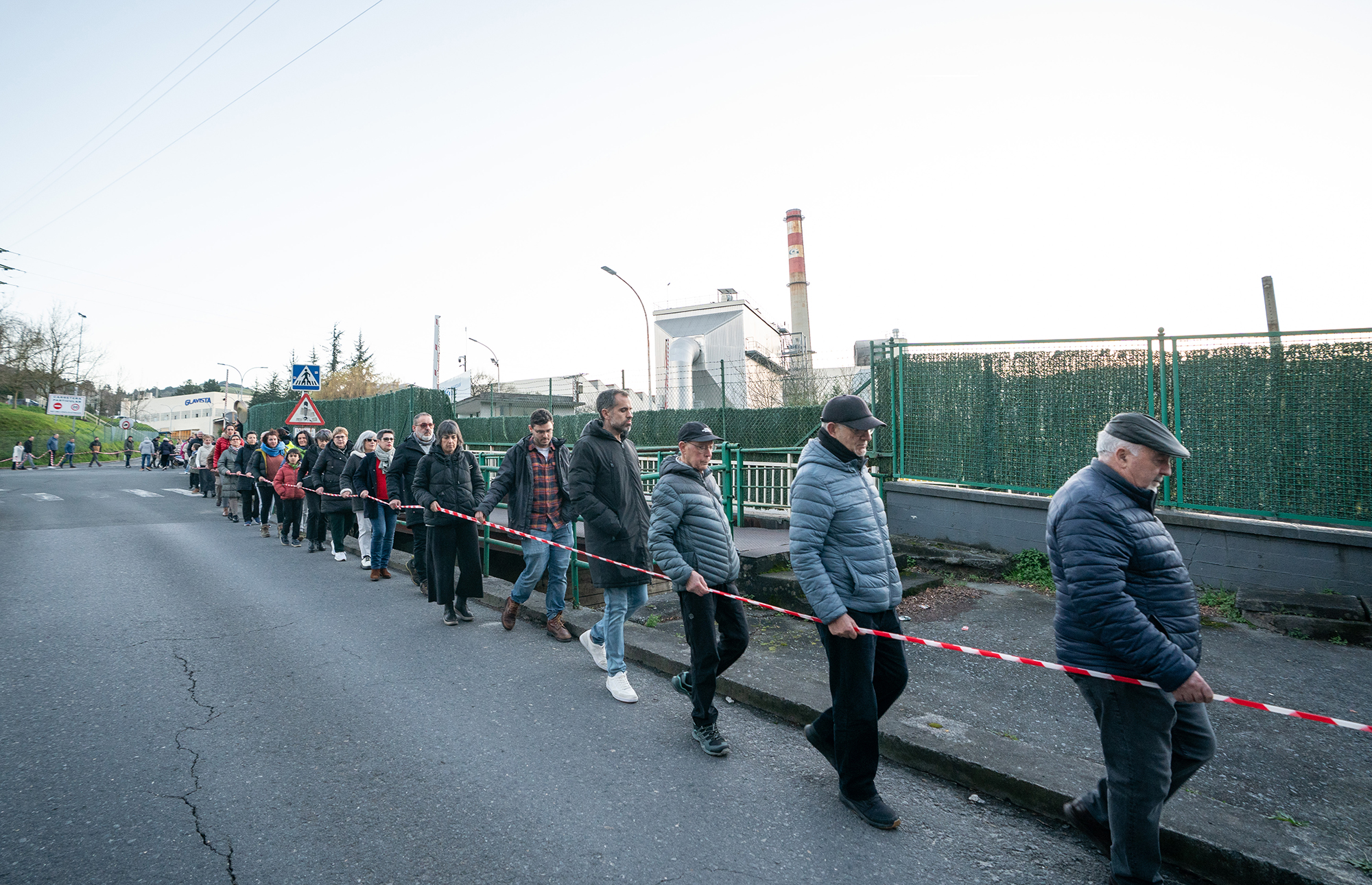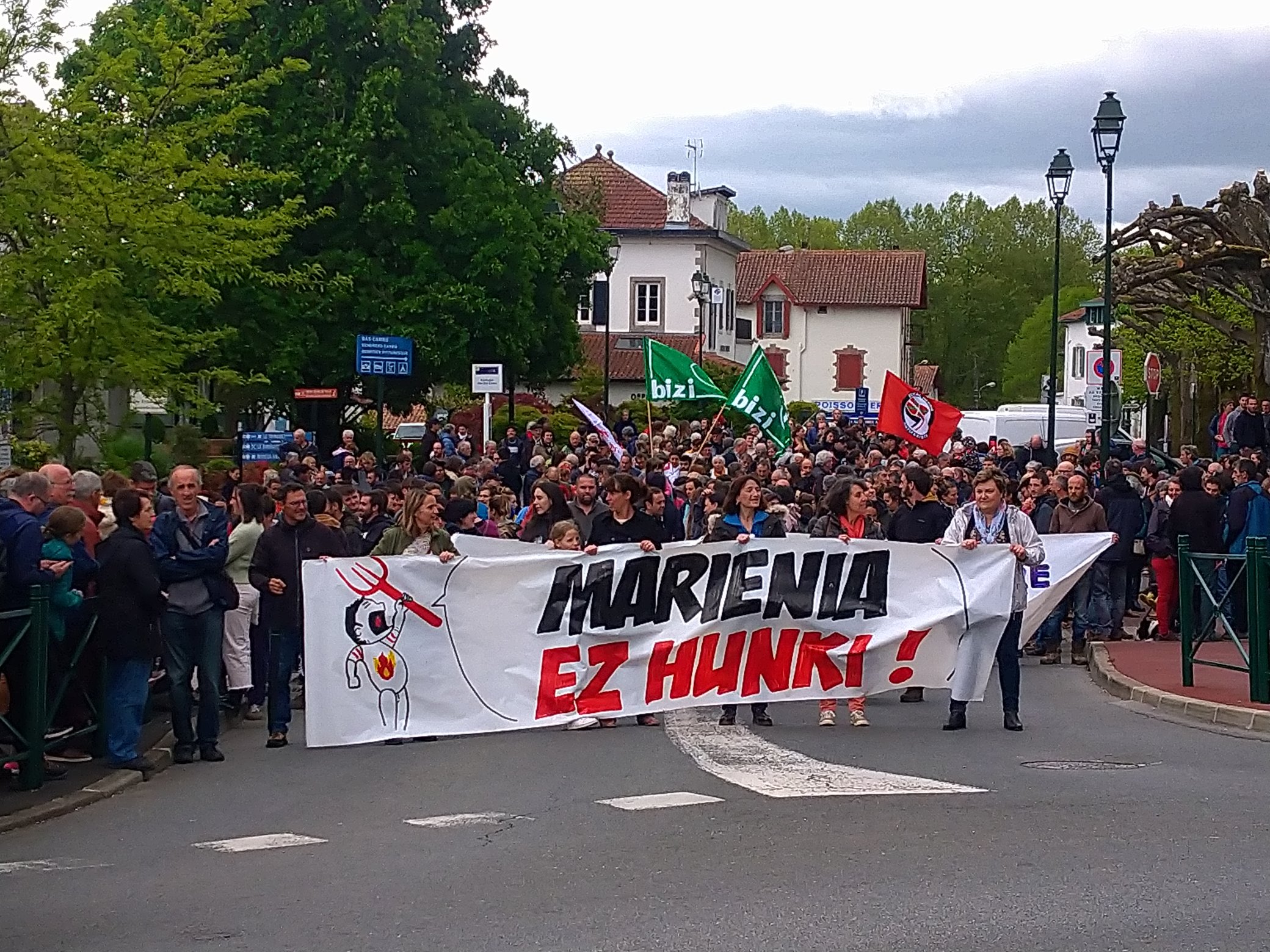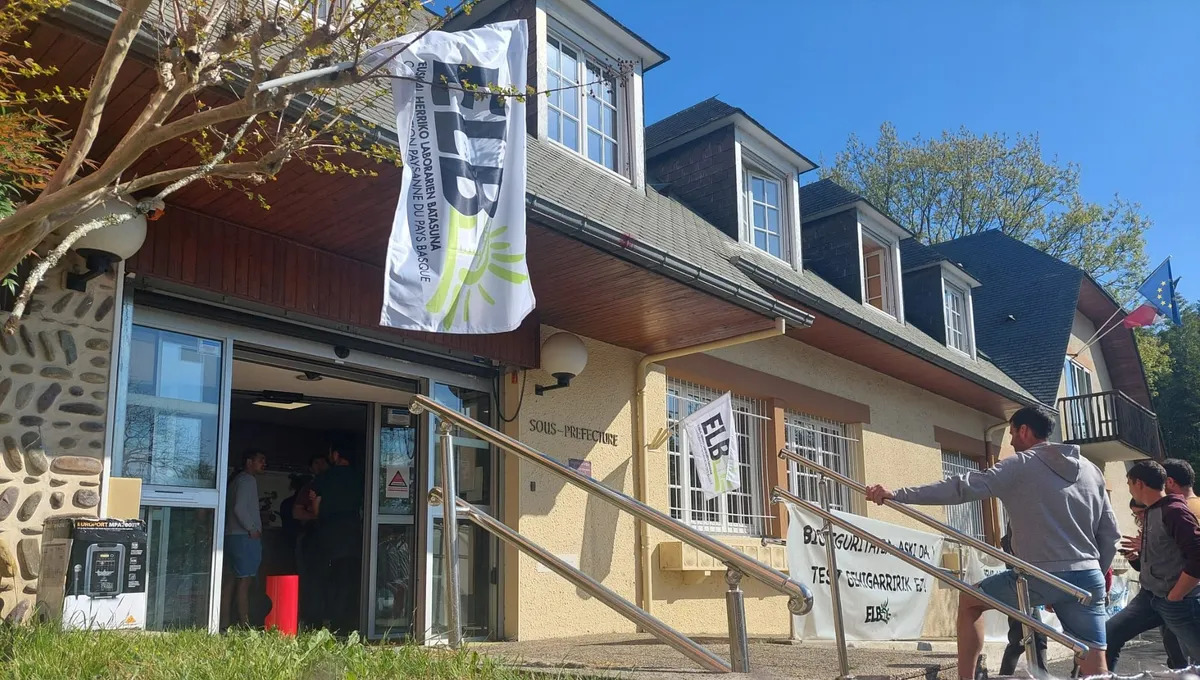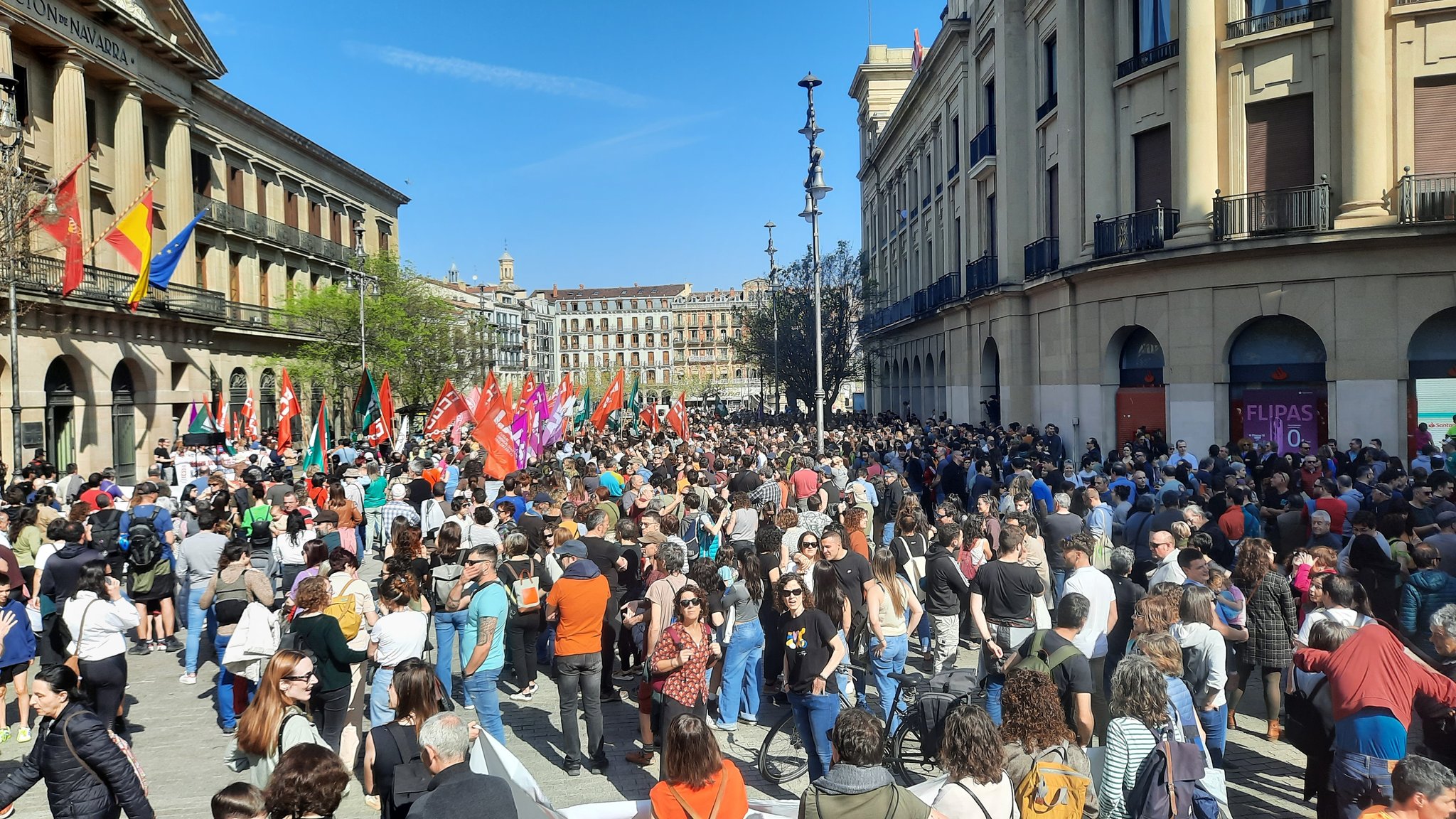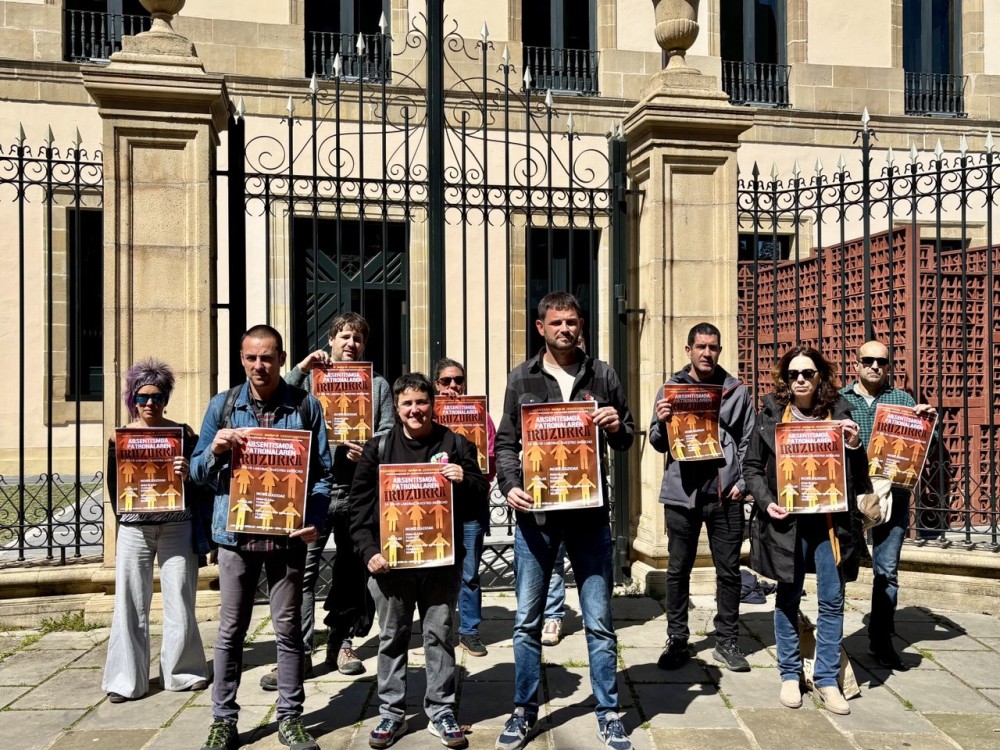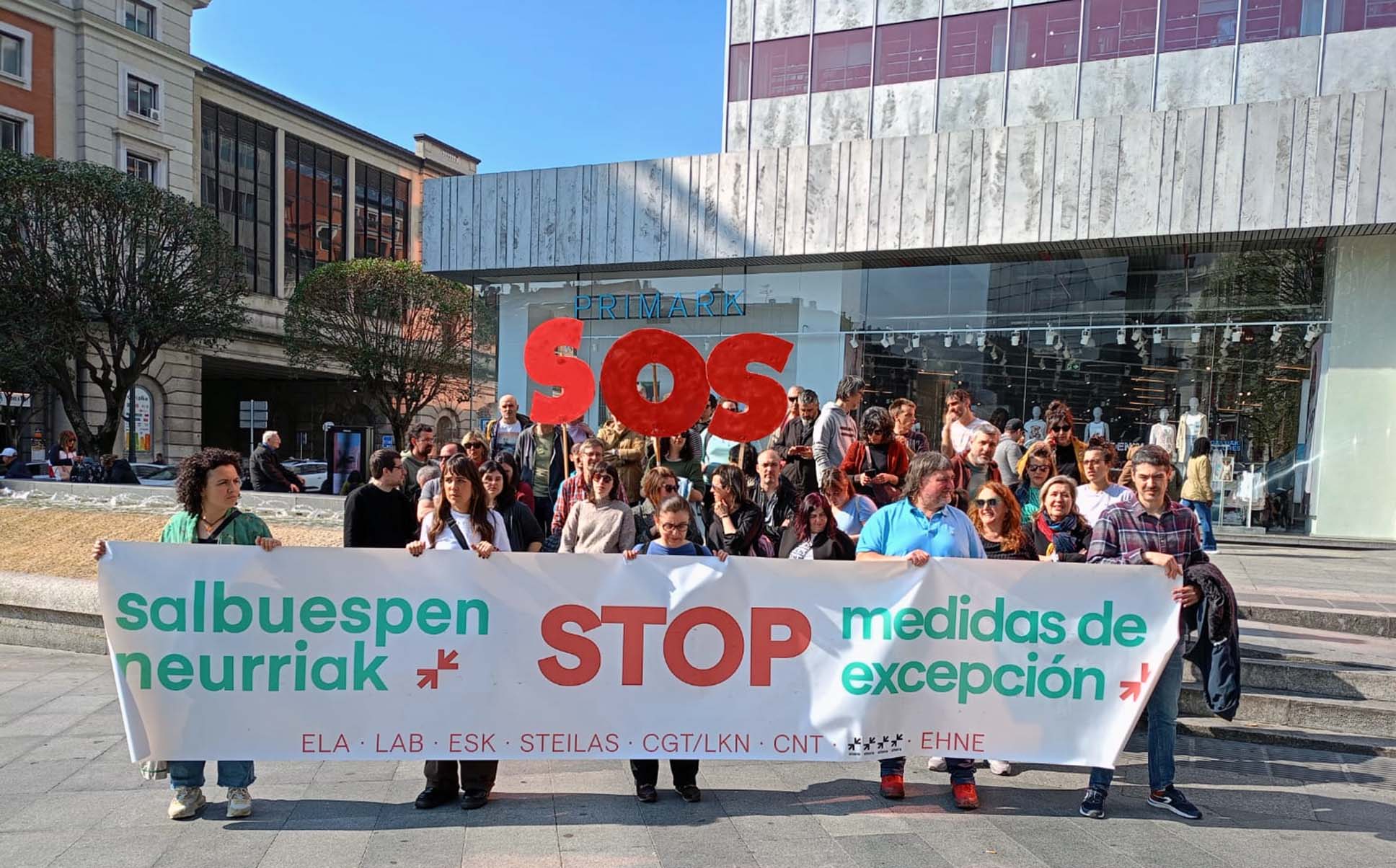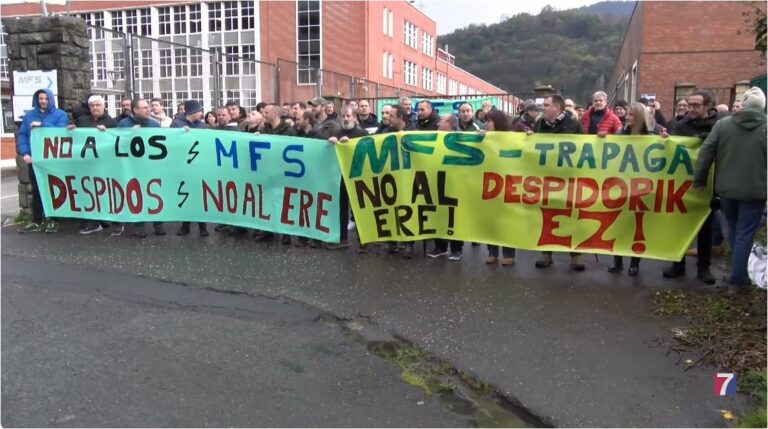Trade unions called the CAV strike in defence of public services "a massive response"
- The callers for the strike have pointed out that more than 18,000 people have participated in the demonstrations in the capitals. The follow-up has been "very widespread", but they have denounced that the minimum services set by the Basque Government have caused many workers to be deprived of the right to strike.

On Thursday, thousands of public sector workers supported the strikes called by the trade unions ELA, LAB, CCOO, SATSE, ESK and Steilas in Araba, Bizkaia and Gipuzkoa, among others. The strike has been called upon to demand the creation of jobs in the sector and its "consolidation", as the temporary rate in many cases reaches 40%.
According to the callers, the strike has been "broadly monitored", especially among casual workers, "virtually total". The unions have pointed out that the follow-up in non-university education has been "uneven", but also highlighted the response, which has been outstanding in Primary School, where 55% of workers have been employed, among school cooks or in municipalities such as those in the three capitals.
For its part, the Public Governance and Self-Government Counsellor, Olatz Garamendi, said that the strike had been monitored at 16.4% and that, as she said, a "proactive attitude" is being taken to approve and convene public employment offers.
The trade unions have regretted the minimum services established by the Basque Government, but have explained that over and above these obstacles the workers have taken to the streets: "Despite the fact that it has left all cleaning workers without the right to strike and with the establishment of minimum services of 100%, a large number of cleaners who generally work in the afternoon have participated in the demonstrations in the morning."
According to the call count, more than 18,000 people participated in the demonstrations held in Vitoria-Gasteiz, Donostia-San Sebastián and Bilbao. The one in Bilbao has been the most massive and thousands of people have taken the streets of the Biscayan capital.
At the end of the demonstration, a joint communiqué was read (pdf) highlighting that there are currently 120,000 people in a precarious situation of subcontracting: "This unacceptable level of provisionality, which is repeated systematically, generalized and in many cases fraudulent in the public sector as a whole of the CAV, can only appear as a necessary preliminary step towards the objective of subcontracting and privatization", they said.
In this sense, they believe that it is necessary to "emerge structural jobs" to end these levels of interity: "Because in this pandemic that we are living, the thousands of workers who are taking public services forward cannot stay on the streets."
Public education teachers have the need and the right to update and improve the work agreement that has not been renewed in fifteen years. For this, we should be immersed in a real negotiation, but the reality is deplorable. In a negotiation, the agreement of all parties must be... [+]
Economists love the charts that represent the behaviors of the markets, which are curves. I was struck by the analogy of author Cory Doctorow in the article “The future of Amazon coders is the present of Amazon warehouse workers” on the Pluralistic website. He researches the... [+]








